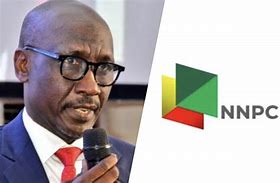By Adeyemi Adekunle
The Office of the Auditor-General of the Federation has commenced a comprehensive audit of the Nigerian National Petroleum Company Limited (NNPCL). The audit focuses on the company’s controversial claim of a N2.7 trillion fuel subsidy refund from the government, raising questions about financial accountability and governmental transparency.
Following a plethora of complaints about mismanagement and a lack of transparency in subsidy disbursements, the Federal Government took decisive action in April 2024 by initiating a new audit process meant to scrutinize NNPCL’s previous claims.
This comes on the heels of an earlier audit conducted by KPMG, which drastically reduced a reported claim from N6 trillion to N2.7 trillion based on their findings. This latest investigation will cover a significant period from 2015 to 2021, delving into the financial dealings that have long sparked public skepticism.
The stakes of this inquiry are significant, as recent comments from NNPCL’s Group CEO, Mele Kyari, raised alarms about the government’s financial obligations. Just weeks after President Bola Tinubu announced the termination of fuel subsidies on May 30, 2023, Kyari revealed to the press that despite the end of the subsidy program, the government owed NNPCL a staggering N2.8 trillion for past subsidies.
“Since the provision of the N6 trillion in 2022 and N3.7 trillion in 2023, we have not received any payment from the Federation. The Federal Government is unable to pay, so we continue to support the subsidy from NNPC’s funds,” he stated.
These startling comments reflect ongoing tensions between NNPCL and government financial agencies, suggesting a failure in fiscal management that has sparked public outrage and scrutiny.
As the audit process unfolds, the Ministry of Finance’s procurement department is currently engaged in the critical task of hiring an external firm to assist the Auditor-General’s Office in the thorough examination of NNPCL’s financial records. The terms of reference and scope of work have been set, laying the groundwork for an independent evaluation of the claims that have long loomed over the national budget.
“An update provided during the Federal Allocation Accounts Committee (FAAC) meeting in September 2024 confirmed that the necessary documents had been provided to conduct the audit,” stated a director from the Home Finance unit. The meeting minutes further confirmed that transparency measures are being taken to ensure that the reconciliation process between NNPCL and governmental agencies is documented and publicized.
Concerns have been raised about the capacity of the investigation to yield transparent results, exacerbated by the recent departure of former NNPCL Chief Financial Officer Ajiya Umar. Industry experts have posited that his exit could hinder the investigation, prompting calls for robust oversight. However, NNPCL spokesperson Femi Soneye has reassured stakeholders that the reconciliation process is well underway, and once finalized, the findings will be shared with the public.
“Reconciliation is currently ongoing with the relevant government agencies and auditors. Once completed, the public will be appropriately informed,” Soneye remarked, aiming to quell apprehensions regarding opaque financial dealings within the organization.
Critics of NNPCL’s management have not held back in their assessments. Energy expert Prof. Wumi Iledare has questioned the company’s decision to allow such a massive debt to the government remain unpaid, raising alarms about operational inefficiency and mismanagement within the agency. “One must ask why NNPCL has allowed this amount to remain unpaid, raising red flags about financial prudence,” he noted.
Meanwhile, Prof. Dayo Ayoade from the University of Lagos emphasized the fundamental issues of transparency that have plagued the relationship between the government and NNPCL, complicating any meaningful efforts to assess accountability. “The lack of clarity and open communication between these involved parties further complicates the narrative around financial accountability,” Ayoade stated.
The fallout from the ongoing investigation could have wider ramifications for Nigeria’s future energy policies and fiscal health. The $214.32 million that was reportedly refunded to the Federation Account by revenue-generating agencies between January and July 2024 could serve as a backdrop for the NNPCL audit. This suggests a larger narrative of financial reconciliation requiring a systemic overhaul in how public funds are managed, allocated, and audited.
As the nation watches closely, a broader conversation about the future of fuel subsidies in Nigeria is brewing. The financial implications of the ongoing audit could lead to pivotal changes in energy policy and economic reform, ideally aiming for increased accountability and transparent governance.
In previous discussions, government officials have hinted at the necessity of reform, underscoring that effective audits and actionable insights are paramount to restoring public confidence in the management of national resources. As audit investigations unfold, stakeholders across the spectrum remain hopeful that these processes will pave the way for a more transparent and accountable approach to economic governance in Nigeria.
As the public awaits the outcome of this significant audit, the emphasis on financial transparency and accountability will remain critical. Whether this investigation succeeds in untangling the complexities of fuel subsidy claims and governmental obligations will ultimately shape the future of Nigeria’s energy sector, impacting the lives of millions who rely on these essential resources.
The results of the audit and the subsequent responses from both NNPCL and the government will signal a pivotal moment in Nigeria’s fight for improved fiscal responsibility and governance transparency.
As the narrative develops, it will require the sustained attention of both the public and key stakeholders to ensure that accountability prevails in one of the nation’s most pressing economic challenges.




